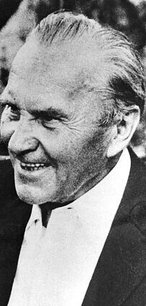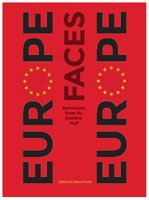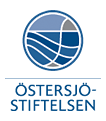Narratives of Europe
How is Europe narrated from its Eastern half?
Subproject A. The ambiguous universality of Europe: phenomenological perspectives from Central and Eastern Europe

Carl Cederberg's subproject focuses on a philosopher with his origin in Central Europe, who
in the late 20th century was perhaps the one who developed the most interesting reflections on the European heritage: Jan Patočka.
In the philosophical tradition following Kant and Hegel, Europe has been associated to the notion of universality. Europe, says Hegel, and later also Paul Valéry and Edmund Husserl, is the region that claims as its particularity to have established mankind’s relation to the universal. This seemingly paradoxal claim (to have universality as its particularity) has since been voiced in numerous ways, and criticised in even more ways. In this project, Carl investigates how this idea has been negotiated by Patočka against the background of the contemporary political discourses stemming from the Brussels institutions.
Patočka, the Czech phenomenologist, finds the claim to universality to be rooted in the Platonic tradition of care of the self. He coins the term post-Europe, a Europe so universalised that it has made itself unnecessary.
The thinker uses the tradition of European philosophy against itself in a movement that deconstructs at the same time as it preserves a certain notion of Europe.
This website contains images from online open sources. Should you justifiably wish to claim copyright for any one of them, please contact the project team

Project book
out now!
Europe Faces Europe: Narratives from Its Eastern Half (ed. by project leader Johan Fornäs) was published by Intellect Press in spring 2017.
For more information,
please contact
Johan Fornäs
johan.fornäs (at) sh.se
research project hosted by Södertörn University and funded by Östersjöstiftelsen

